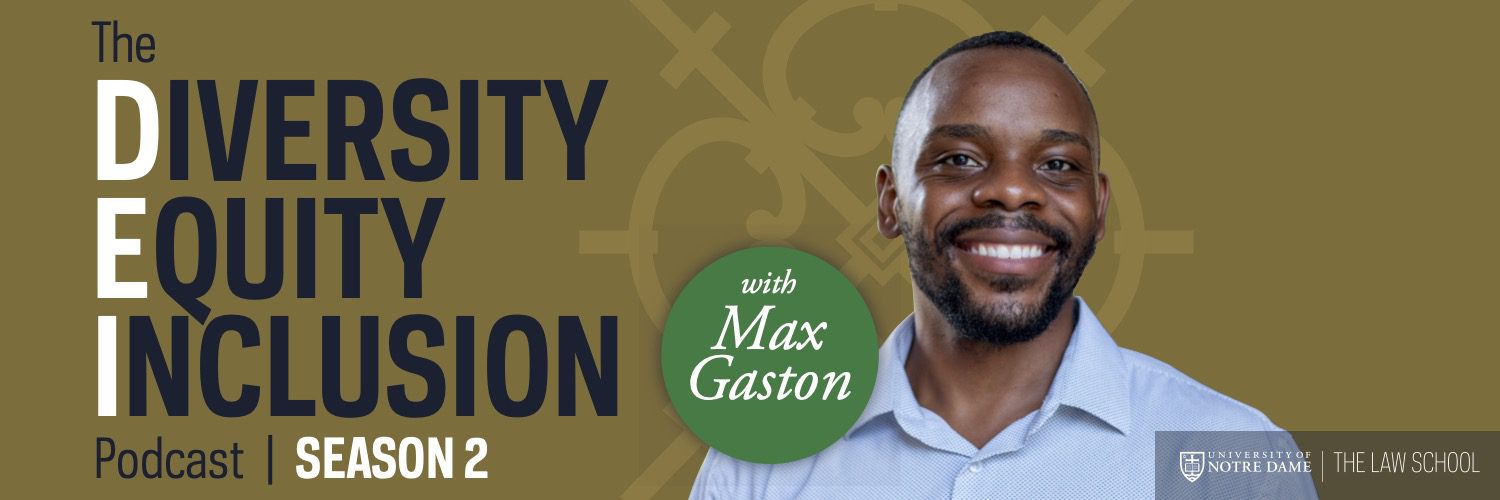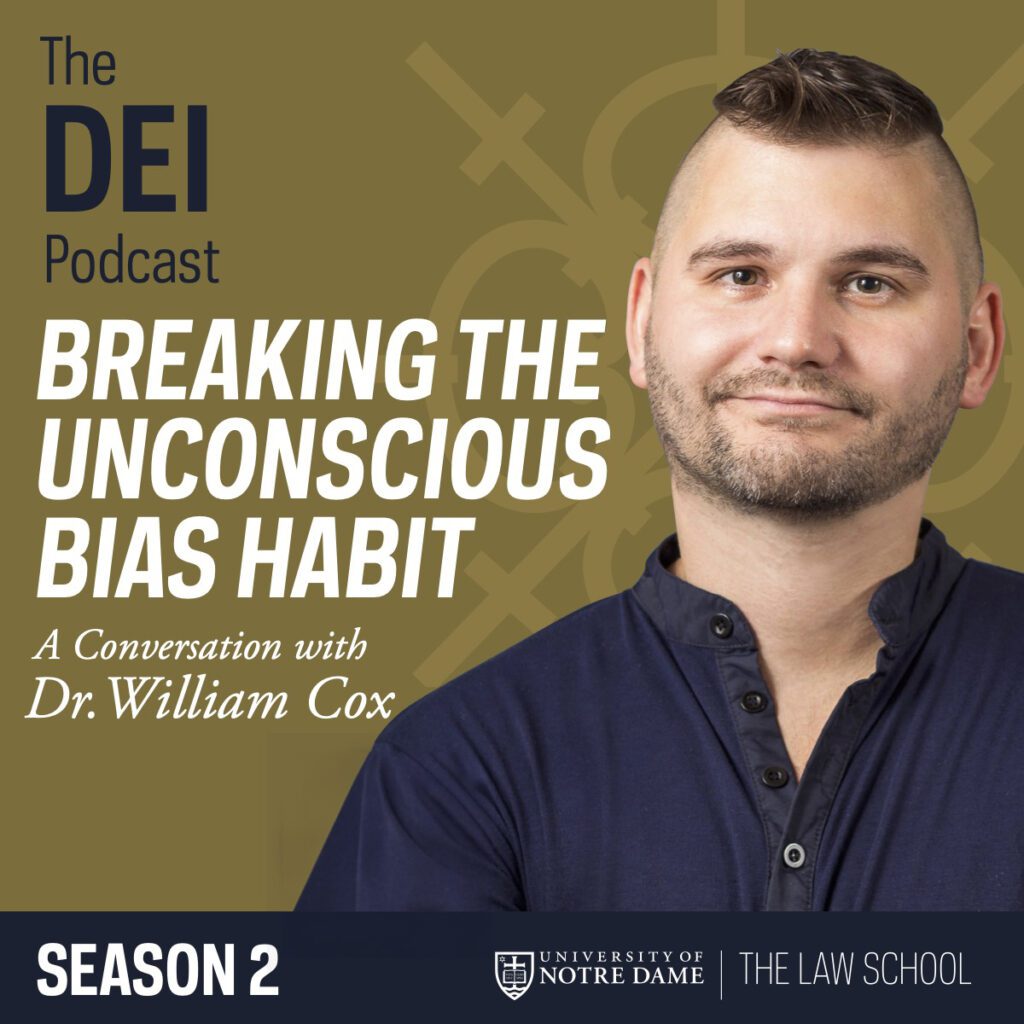Breaking the Unconscious Bias Habit

According to research, bias is a habit that begins to take shape at an early age. As we form our own social identities surrounding things like ethnicity, race, sexual orientation, religion, and gender, we start to identify as members of a specific group of people. These identities in many ways can shape how we see and treat others — and how others see and treat us.
At the University of Wisconsin–Madison, Dr. William Cox, Dr. Patricia Devine, and their colleagues developed the bias habit-breaking intervention, an evidence-based approach which builds on more than 30 years of scientific research on prejudice, stereotyping, and bias, and has been proven to reduce bias in people’s attitudes and behavior long-term. Dr. Cox is the Principal Investigator of the Stereotyping and Bias Research (SABR) Lab in the Department of Psychology at the University of Wisconsin–Madison, and the founder of Inequity Agents of Change, a 501(c)(3) dedicated to reducing bias, creating inclusion, and promoting equity.
In this conversation, Dr. Cox explains how bias impacts the mind. He then provides proven strategies for reducing bias, and identifies common approaches such as color-blindness that people often take to address bias that often create more bias rather than less.
Listen to the Episode
Presented by Notre Dame Law School
Monday, November 6, 2023 8:00 am

According to research, bias is a habit that begins to take shape at an early age. As we form our own social identities surrounding things like ethnicity, race, sexual orientation, religion, and gender, we start to identify as members of a specific group of people. These identities in many ways can shape how we see and treat others — and how others see and treat us.
At the University of Wisconsin–Madison, Dr. William Cox, Dr. Patricia Devine, and their colleagues developed the bias habit-breaking intervention, an evidence-based approach which builds on more than 30 years of scientific research on prejudice, stereotyping, and bias, and has been proven to reduce bias in people’s attitudes and behavior long-term. Dr. Cox is the Principal Investigator of the Stereotyping and Bias Research (SABR) Lab in the Department of Psychology at the University of Wisconsin–Madison, and the founder of Inequity Agents of Change, a 501(c)(3) dedicated to reducing bias, creating inclusion, and promoting equity.
In this conversation, Dr. Cox explains how bias impacts the mind. He then provides proven strategies for reducing bias, and identifies common approaches such as color-blindness that people often take to address bias that often create more bias rather than less.
The DEI Podcast with Max Gaston is sponsored by Notre Dame Law School and co-sponsored on ThinkND by the Black Alumni of Notre Dame, the Alumni Rainbow Community of Notre Dame (ARC ND), YoungND, Native American Alumni, Notre Dame Women Connect, Hispanic Alumni of Notre Dame, Notre Dame Senior Alumni, and Asian Pacific Alumni of Notre Dame. Register to receive emails about upcoming episodes of The DEI Podcast.
View EventMeet the Speaker: William Cox

Dr. William Cox is the Principal Investigator of the Stereotyping and Bias Research (SABR) Lab in the Department of Psychology at the University of Wisconsin–Madison, and the founder of Inequity Agents of Change, a 501(c)(3) dedicated to reducing bias, creating inclusion, and promoting equity. Over the past 16 years, Dr. Cox and his colleagues developed and experimentally tested the bias habit-breaking intervention, which Dr. Cox regularly presents to organizations around the world.
This training:
1. equips attendees with a deeper understanding of ways that race bias,
gender bias, or other intergroup biases can seep into judgments and
behavior unintentionally, and
2. empowers people to reduce the influence of those biases by teaching a set
of concrete evidence-based tools for reducing biases and creating inclusion. The bias habit-breaking intervention was the first, and remains the only intervention that has been shown experimentally to produce long-term reductions in bias and increases in inclusion and equity.
In contrast to many diversity or bias trainings that are neither evidence-based nor experimentally tested, the habit-breaking intervention has been rigorously assessed in dozens of randomized-controlled studies, and shows robust long-term effectiveness.
Dr. Cox’s research all serves the ultimate goal of understanding and reducing the injustice, human suffering, and disparities that arise from stereotyping and prejudice. A key theme throughout his work is understanding fundamental processes at play in stereotyping and bias, especially how neural, cognitive, and cultural processes lead to the perpetuation of stereotypes and biases. His work also serves as a bridge between basic, fundamental science and translational, applied intervention work: he leverages advances in basic knowledge about stereotype perpetuation to develop, test, and refine evidence-based interventions to reduce bias.
Dr. Cox received his Ph.D. in Social Psychology at the University of Wisconsin–Madison. His contributions to basic and translational research on stereotyping and bias reduction were recently recognized by National Institute of General Medical Sciences at NIH in the form of a Maximizing Investigator’s Research Award. His work has been featured several times on NPR and WPR, and has appeared in The New York Times, The Washington Post, CNN, Vanity Fair, and other major outlets.
